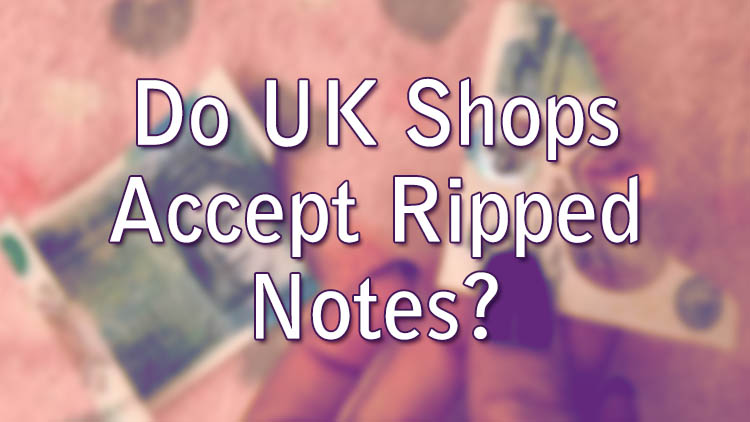
In the United Kingdom, a common concern amongst shoppers and retailers alike revolves around damaged or torn banknotes. While these notes may have lost their pristine condition, they may still hold their original value.
However, the acceptance of such notes often depends on the extent of the damage and the discretion of the retailer. Find out more by reading this Wizard Slots blog post.
Ripped Notes: Do Shops Have To Accept Them?
Contrary to popular belief, there is no legal obligation for shops in the UK to accept damaged or ripped banknotes. As a business transaction, it is entirely up to the retailer's discretion to decide whether or not to accept a damaged note as payment. However, this principle should not be confused with the concept of 'legal tender', which only holds relevance in the settlement of debts.
Is a Note Still Valid If It Is Ripped?
According to the Bank of England, a ripped or damaged note may still be valid, provided that at least half of the note is intact. This criterion is set by the Bank of England's Mutilated Notes service, which aims to reimburse individuals for accidentally damaged or mutilated banknotes.
Each claim is assessed carefully, and successful claims are paid directly into the applicant's bank account.
To claim for a damaged note, an individual must fill out a damaged banknote application form and send it, along with the remains of the banknote, to the Bank of England. The bank usually assesses most claims within one month, and successful applications are reimbursed by electronic payment.
It is important to note that damaged banknotes cannot be delivered in person. Posting the banknote is done at the applicant's own risk, and it is recommended that high-value claims be sent via Royal Mail special delivery.
It's also important to note that the ripped note is still valid to the Bank of England, which may replace it, but it still doesn't mean shops have to accept it.
Do Cash Machines Take Ripped Notes?
Cash machines, or Automated Teller Machines (ATMs), are designed to reject damaged or ripped notes. This is because the machines use sensors to identify and verify the authenticity of the notes.
If a note is ripped, torn, or excessively worn, the machine may not be able to read it correctly and will likely reject it. This is a precautionary measure to combat counterfeit notes from entering circulation.
In Summary
While damaged or ripped notes may still hold their original value; their acceptance is down to the retailer's discretion. However, the Bank of England's Mutilated Notes service can help individuals claim reimbursement for such notes.
On the other hand, cash machines are designed to reject damaged notes based on the chance that hard-to-read notes may be counterfeit.
The key takeaway is to remain vigilant when dealing with cash. Always inspect your banknotes and refuse any that look damaged, counterfeit, or stained with dye. If you find yourself in possession of a damaged or potentially dodgy banknote, the Bank of England's Mutilated Notes service can be a valuable resource.
